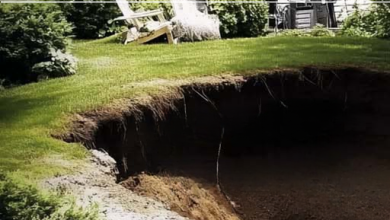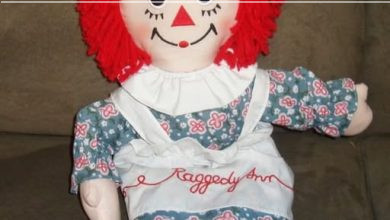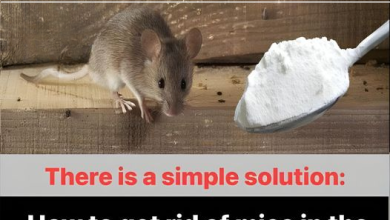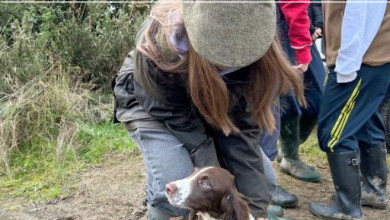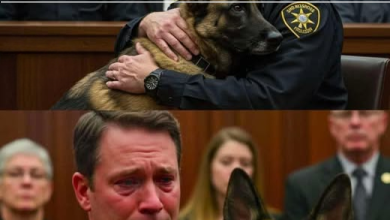It Was Meant to Be Temporary—But She Couldn’t Say Goodbye to the Chick
The plan was simple: hatch chicks in the classroom, care for them for two weeks, and send them back to the farm. That was the rule—no exceptions.
But my daughter Emery had other ideas.
From the moment she cradled that tiny, trembling chick, something in her changed. She whispered to it like they shared a secret. Every morning, she snuck into the classroom early, just to check on it.
She named the chick Pebble—“because she’s little, but tough.”
When the project ended, the other kids said goodbye and moved on. Some shed a few tears. Most forgot by the next week.
But Emery just stood there in silence, staring at the empty enclosure with a quiet heartbreak I’d never seen in her.
That night, she barely touched her dinner. She couldn’t sleep.
“She’s mine,” she whispered. “I protected her. I told her she was safe.”
I emailed the school, hoping for a way to keep Pebble. There wasn’t one. Pickup was already scheduled.
So the next morning, we got in the car before sunrise. Emery brought a drawing of Pebble to help identify her—like a passport.
When we arrived, the farmer’s truck was already there. Emery ran to him, holding out her picture without saying a word.
The farmer looked at her, then at me, then back again.
“Well now,” he said gently, kneeling to meet her eyes. He took the drawing carefully in his rough hands. “What do we have here?”
Emery swallowed hard. “It’s Pebble. She’s special.”
He studied the picture—a simple yellow blob with stick legs and a huge red heart. But there was something sincere in it. Something real.
“Special, huh?” he asked. “Why?”
“She listens when no one else does,” Emery said quickly. “She trusts me. I promised I’d take care of her.”
The farmer looked at her thoughtfully. “We’ve raised hundreds of these birds. Most kids forget them. But you remembered.”
Her grip tightened on the picture. “Does that mean I can keep her?”
He scratched his head. “Technically, these chickens belong to the farm. But…” He gestured to a sign on his truck that read: Adopt-a-Chicken Program. “If you’re willing to put in the work, maybe we can work something out.”
An hour later, Emery and I were sitting at the farmer’s kitchen table, filling out forms and learning about chicken care. It wasn’t just a pet—it was a responsibility.
“You’ll need a coop,” he said. “Proper food. Protection from predators. And daily clean-up.”
Emery nodded earnestly. “I’ll do it all. I promise.”
I leaned over to her and asked, “Are you sure? This is serious.”
“I know,” she said, still holding Pebble close. “I’m ready.”
We drove home with a chick, a bag of feed, and a new chapter beginning in the backseat.
Life shifted. Emery spent every day with Pebble, who grew into a bold little hen with plenty of personality. Building the coop turned into a full-blown family project. And slowly, I saw my daughter grow too—into someone more patient, observant, and deeply caring.
One evening, while watching the sunset together, she turned to me and asked, “Do animals feel love?”
“I think they feel connection,” I replied. “They know when someone truly sees them.”
She nodded. “That’s why Pebble stays near me. She knows I’ll protect her.”
Then came the night everything changed.
A stormy night. A loud commotion outside. Emery and I raced to the coop and found Pebble injured—a deep cut on her wing.
“A fox,” Emery whispered. “She fought it off.”
We cleaned and wrapped the wound together. Emery stayed by Pebble’s side for days, reading everything she could about chicken care.
And then, just as hope was dimming, Pebble laid her first egg.
“She did it!” Emery cried. “She’s okay!”
“You saved her,” I told her through tears.
Over time, this experience became more than just about raising a chicken. It became a journey of responsibility, resilience, and deep empathy.
Once, while shopping, Emery paused at a carton of eggs.
“Mom… do people really eat these?”
“Yes,” I answered, puzzled.
“But… what if they had names? Like Pebble?”
That question stayed with me.
“We don’t have to eat eggs,” I told her gently.
She smiled. “Good. Because eating friends is weird.”
Years later, when Emery graduated, she gave a speech on compassion. She talked about Pebble—the tiny chick who taught her the biggest lessons.
“Sometimes,” she said, “love means noticing something no one else does… and refusing to let go when it matters.”
As the crowd stood to applaud, I knew: Emery had grown into someone remarkable. And it all started with one stubborn chick named Pebble.
